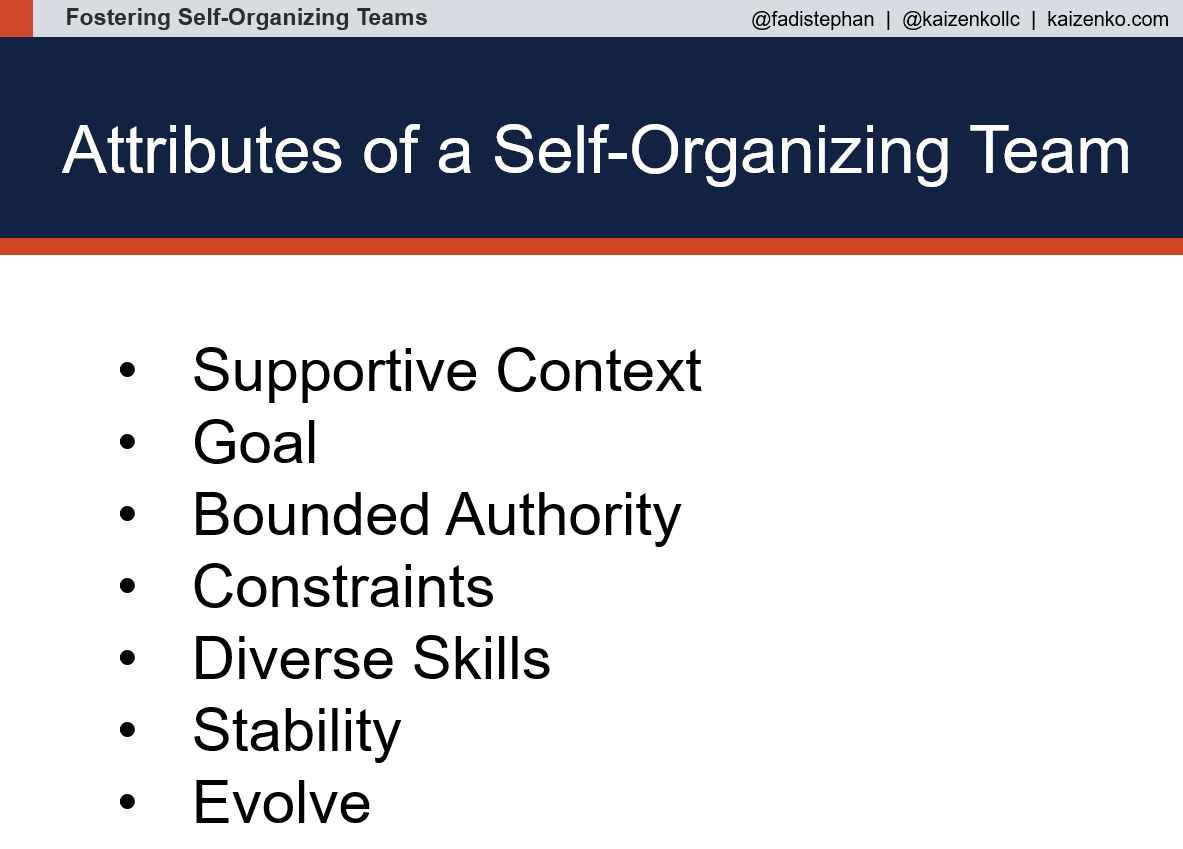A self-organizing team needs to have these 7 attributes to be successful.
Supportive Context: The team needs to have some basic foundations like
- Infrastructure including a physical space suitable for team collaboration along with modern technical tools and infrastructure to perform the needed work.
- Information including access to necessary people and data to better understand the work and properly execute on it.
- Education including providing the team the initial and ongoing training that they need along with any additional resources.
- Reward including proper compensation as well as non-monetary rewards and positive feedback re-enforcing good performance.
Goal: The team needs to be collectively working towards a common vision and a goal.
Bounded Authority: The team needs clarity around decision making authority. What can the team decide on its own and what can’t they? This needs to be often revisited and gradually expanded.
Constraints: The team needs clarity around the constraints they are working under and efforts that are underway to minimize and remove any constraints that are slowing the team down.
Diverse Skills: The team needs to have varied skill sets in order to be able to convert an idea into a deliverable. Team members respect and appreciate the skills that each member brings to the team and pair to cross-train and learn from each other as they work on expanding and improving their collective skills.
Stability: The team members need to be together for an extended period so that they have enough time to go through the stages of team development and get to the high performing state.
Evolve: The team needs the space and time to take ownership of how they work and then continuously evolve from there.
https://www.infoq.com/articles/what-are-self-organising-teams/
Also check out the complete Fostering Self-organizing Teams series:
- What is a Self-organizing Team?
- Scrum Magic! Do Scrum – Become Hype-productive!
- 3 Models for Skills Acquisition
- Shu Ha Ri
- The Dreyfus Model of Skills Acquisition
- Situational Leadership
- Tuckman’s Stages of Group Development
- Drexler/Sibbet Team Performance Model
- The ScrumMaster’s Role is Fostering a High Performing Self-Organizing Team
- 7 Attributes of a Self-Organizing Team
- Delegation Board for Fostering a Self-Organizing Team
- The ScrumMaster’s Progressive Delegation Responsibility
- Fostering Self-Organizing Teams Presentation
